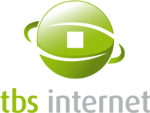E-invoicing and e-reporting : new regulation
On July 1st, 2024 the transition to e-invoicing will be launched in France leading to no paper invoicing policy.
EDIT 20231020 : The Ministry of the Economy recently announced its decision to postpone the electronic invoicing generalization so that the migration takes place under the best conditions. The transition will start on September 2026, see the updated calendar below.
What are the new rules?
As of September 2026 all organizations will have to be able to receive electronic invoices. By September 2027 all organizations will have to issue their invoices in electronic format. This progressive deployment will also take into account the organization size.
An accounting software compatible with the new standard will be required as well as an access to an online invoicing platform (free or chargeable). The mandatory elements to display on your accounting documents stay the same.
The calendar:
- from September 2026: all organizations must accept electronic invoices
- from September 2026: big and mid-sized organizations must issue their invoices in electronic format
- from September 2027: intermediate and small size organizations must issue their invoices in electronic format
mandatory mentions
The decree 2022-1299 of the October 7, 2022 provides additional information on e-invoices.
The invoices issued after September 2026 (between organizations subject to VAT) will have to include new mandatory mentions:
- The supplier identity number (SIREN in France)
- The delivery address if it differs from the customer's one
- The kind of products: service provision, supply of goods or both
- The tax payment after debits if the supplier chose this option
For organizations subject to another group than VAT: these mentions will be applied as of September 2027 for intermediate and small size organizations.
Who's concerned?
All invoices regarding transactions between organizations subject to VAT will have to be created in electronic format, meaning the B2B transactions between French organizations collecting and redistributing VAT to government. A declaration system (e-reporting) is also planned for international B2B transactions and B2C ones.
Note: B2G (Business to Government) exchanges are concerned as well but already require e-invoicing via Chorus Pro platform since 2017.
Why such an evolution?
The e-invoicing deployment has several objectives:
- Simplify the organizations workflow and reinforce their competitiveness by lightening administrative load, diminishing the payments delay and increasing their productivity ;
- Eventually simplify obligations regarding VAT declaration (with pre-filled declarations) ;
- Enhance fraud detection ;
- Get a real time knowledge of the organizations activities.
How are going to be transferred the invoices?
Dispatching and receiving invoices will be done by means of dematerialization platforms (Partner Dematerialization Platform or PDP).
Each organization will have to select a platform to receive its invoices (supplier invoices) and a platform send its invoices (customer invoices). In most cases the organizations will choose a single platform for both purposes. The government will provide the free platform Chorus Pro (the Public invoicing portal or PPF) and private platforms (PDP) will be available.
This will result in a "Y-shaped diagram":

Those diagram present the different sending and receiving options. In all cases the PPF will concentrate the data intended for the tax administration and will transfer it. It is the PDP that extract the invoicing data to give it to the PPF.
The directory
The link between all the actors involved in the e-invoicing process will be assured by a shared directory (managed by the PPF) that will list all concerned French organizations and designate their receiving platform (the dispatching platforms are not to be displayed there, only the receiving ones will be).
The identifier will be the organization number (SIREN) but it will be possible to indicate invoicing entities by their SIRET.
The registration procedure to the directory are not known yet.
The Partner Dematerialization Platform (PDP)
The PDP will be audited to obtain a 3-year valid renewable accreditation. There is no list yet.
Note that you'll be able to switch platform at any time.
The decree 2022-129 presents as well the requirements that the PDP will have to fulfill: functionalities, sacurity, registration, interoperability...
The invoices format
Several formats will be accepted for the invoices transmission:
- UBL format: XML document compliant with the OASIS U.B.L. 2.1 specifications
- CII format: XML document compliant with the CIII specifications regarding naming rules, cardinality and format (datatype).
- Factur-X format: the mixed Factur-X invoice is a PDF/A-3 formatted file. The invoice original document is the PDF/A-3 file as a whole and therefore including embedded files such as the structured data file (XML file) and attached additional documents.
E-reporting
The e-reporting is the procedure consisting in sending to the tax administration the data pertaining invoices payment and transaction data (payment without invoice). It targets international B2B transactions, B2C ones and transactions between organizations not subject to VAT.
The invoice is sent to the customer directly by the supplier. At the same time the supplier sends the e-reporting data to its PDP.
This will result in a slightly different "Y-shaped diagram":

Such an invoice must keep respecting the current dematerialization regulation if it is sent to the customer by e-mail or if it has to be archived in digital format.
Useful links
- generalization of e-invoicing for French organization (French)
- E-reporting: Transmitting transaction data to the tax administration (French)
- I choose the e-invoicing (French)
- E-invoicing (French)
- External specifications regarding e-invoicing (French)
- October 7, 2022 decree 2022-1299 pertaining to the e-invoicing generalization in transactions between organizations subject to VAT and to the transmission the transaction data




